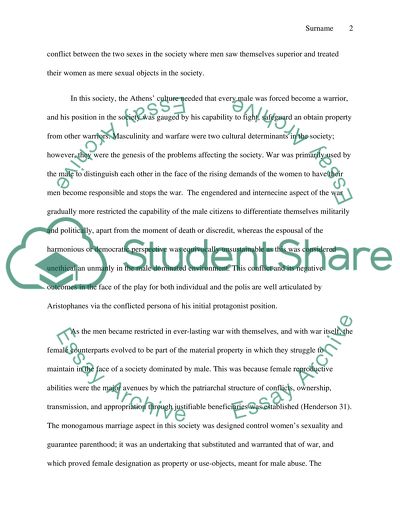Cite this document
(“Meaning and Thematic Significance of the Quote from Lysistrata by Term Paper”, n.d.)
Meaning and Thematic Significance of the Quote from Lysistrata by Term Paper. Retrieved from https://studentshare.org/literature/1449048-explain-the-meaning-and-thematic-significance-of
Meaning and Thematic Significance of the Quote from Lysistrata by Term Paper. Retrieved from https://studentshare.org/literature/1449048-explain-the-meaning-and-thematic-significance-of
(Meaning and Thematic Significance of the Quote from Lysistrata by Term Paper)
Meaning and Thematic Significance of the Quote from Lysistrata by Term Paper. https://studentshare.org/literature/1449048-explain-the-meaning-and-thematic-significance-of.
Meaning and Thematic Significance of the Quote from Lysistrata by Term Paper. https://studentshare.org/literature/1449048-explain-the-meaning-and-thematic-significance-of.
“Meaning and Thematic Significance of the Quote from Lysistrata by Term Paper”, n.d. https://studentshare.org/literature/1449048-explain-the-meaning-and-thematic-significance-of.


